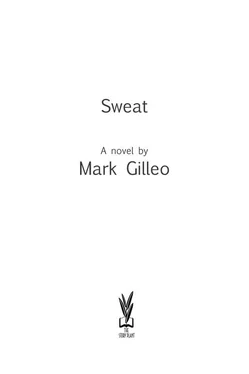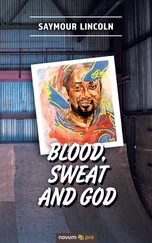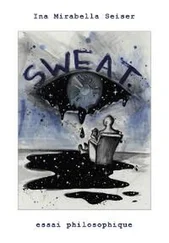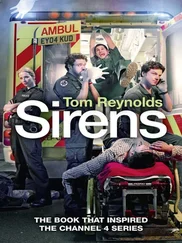“So if my father wasn’t a spy…”
“He didn’t work for the CIA, but he fed the CIA information, for money. A very subtle difference.”
“I don’t think my father needs the money.”
“Jake the snake, when you’re right, you’re right. It wasn’t a matter of money with your father.”
“Then why did he do it?”
“For the chance to be a big shot. We are talking twenty some years ago. Your father had started Winthrop Enterprises and was traveling the globe making connections, signing deals and hobnobbing with the international elite.”
“That’s what he’s doing now.”
“Yes, but aaaaah, the world was a lot smaller twenty-five years ago. There weren’t a lot of westerners running around Tokyo and Beijing. Your father stood out. A young, successful, globetrotting American businessman.”
“I still don’t see the connection with the CIA.”
“Connection. Good choice of words. Your father was a connection.”
“How?”
“We paid your father to report on what he saw in Tokyo and Beijing. Who was talking to whom about what business. Deals in the works, activities of interests. Protests, if there were any. Incidents of bribing. Whatever he could tell us.”
“Wouldn’t the CIA know all of this?
“Sure, well, some of it anyway. But it cost a lot of money to get intelligence through formal channels. Renting real estate, setting up front companies, implementing electronic surveillance, these things aren’t free and believe it or not the CIA does have a budget. Paying American citizens to tell us what they know is cheap.”
“So what did he tell you?”
“Your father was a good source of intelligence for a few years. He tipped us off to the sale of certain illegal hi-tech goods in Asia that we weren’t aware of. Some technology that ended up in a North Korean sub that washed ashore in South Korea years later. You can learn a lot from drunken businessmen in Roppongi. Hell, you can even get their business cards.”
“Okay,” Jake said, stretching out the second syllable.
“But after a few years we suspected your father of fabrication. We compared a lot of the intelligence from your father, and people like him, with our own intelligence. It is a good checks-and-balances measure. We started to see large discrepancies in the information from your father and the intelligence generated by the CIA through other means.”
“Are you saying my father was lying to the CIA? I find that hard to believe.”
“Not lying…exaggerating. But we couldn’t really prove it either. And even if we did, there was nothing the CIA could do. The CIA is not a law enforcement organization. We are actually an organization designed for the sole purpose of breaking the law, just not American law. Your father is an American, he wasn’t selling U.S. secrets to anyone, he wasn’t in the military or in a position to have sensitive military information, and he was gathering intelligence for us. It wasn’t a matter of national security.”
“What happened?”
“We told him his services were no longer needed and that we suspected some of the information he gave us had been inaccurate. We turned his name over to the FBI, to have his information added to a watchlist, and that was the end of my involvement with him. There was nothing else we could do.”
“And that’s it?”
“That’s it.”
“So you know my father?”
“I worked in Asia during the same period that your father supplied us information. I was the one who discovered the discrepancies. I was the one who arranged for him to be recruited.”
“Recruited?”
“Yes. The recruitment was finalized in a sauna in Tokyo, after several less-than-chance meetings I had arranged.”
“The sauna?”
“A great place to recruit. Everyone is naked and the temperature is hundred and thirty degrees Celsius. No one is going to be eavesdropping. No one is going to be wearing a wire. And although I have no concrete scientific evidence to back me up, I think the heat makes people more susceptible to influence.”
“How much did you pay him?”
“Oh I don’t remember exactly, and if I did I couldn’t tell you. Off the record, we probably paid him a couple of thousand a month. He was usually debriefed in D.C. when he got back in the U.S. That’s how I met Marilyn. She was always by his side. Always very pleasant.”
“If my father no longer fed you information, why did you keep in touch with her?”
“Marilyn? Pure coincidence, really. After my family passed, I moved into Potomac Falls Condominiums. Marilyn was my neighbor.”
The mystery around the great Peter Winthrop just got deeper. For Jake, life as an English teacher was looking more appealing every second. “What’s our next move?” Jake asked, half-afraid of the answer.
“Jake, why do you want to help this Wei Ling?”
“Because it is the right thing to do.”
Al, homeless cover operative, stuck out his dirty paw. Jake looked at Al’s hand and then extended his own.
“Then you and I are going to be pals, Jake. Spike Lee hit the nail on the head. Do the right thing.”
“So what do we do?”
“You need to decide what you want to do, Jake. I just agreed to get you the information.”
“You’re not going to help?”
“I didn’t say that. But you’re leading this expedition.” Al thought about Jake and the slim chance that someone was after his newest friend. “Let me give you my number,” Al said, looking for a pen. “If you see anything strange, duck first, then give me a call and leave a message.”
“And in the meantime?”
“What?” Al asked.
“What’s our plan?”
“Jesus, Jake. Life doesn’t just map itself out for you. Talk to your father again. See if he can’t straighten it out. Tell him you know he is lying and force him to give you some evidence that will rest your soul. Tell him you know the girl is still on Saipan. Rattle his cage a little. Write your letter to whomever.”
“So that’s it?”
“For now, that’s it. Feel free to come back anytime to visit. I’m usually around the Mall somewhere.”
Chapter 21
Jake rang the doorbell to the rectory on the side of the church. He waited and hit the buzzer again before walking back down the narrow walkway to the front entrance. He pulled open the oversized doors and light poured into the dark vestibule, reflecting off the top of the newly shined pew backs. He dipped his middle finger into the holy water and kneeled briefly while crossing himself in the name of the Father, Son, and Holy Spirit. Amen.
A lone parishioner sat in the sea of pews, head down, heavy into prayer, trying to vanquish years of natural Catholic guilt. It was the first time Jake had been back to the church since his mother’s funeral. He had been to Mass with Kate twice in the last month, both times at St. Nicholas in upper Northwest D.C. The nice part of town. But Jake wasn’t coming to pray. He walked down the aisle to the front of the altar, knelt one more time, and took a left.
Jake knew the church as well as anyone, save for Father McKenna and Sister Ann, the padre he had known since birth and the nun whose age could be measured in the wrinkles of her face. Jake knew the smell of the candles, the sound of the organ. He could identify the squeaky back pew with his eyes closed. Baptism, first communion, confirmation, four weddings, his mother’s funeral and three years as an altar boy. The church had long since lost the power of the silent spell it cast on most parishioners who showed up for an hour a week of spiritual due diligence.
Father McKenna was in the back room, straightening the small locker that held his collar when he slept. Jake knocked lightly on the open door, and Father McKenna turned toward his guest, arms open wide.
Читать дальше












